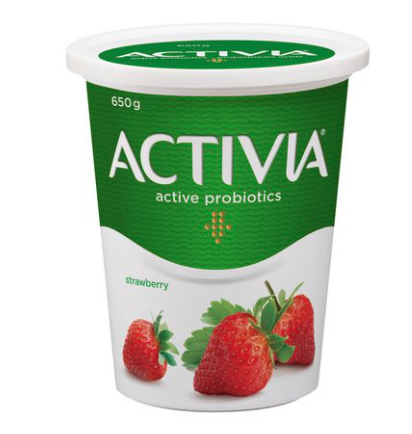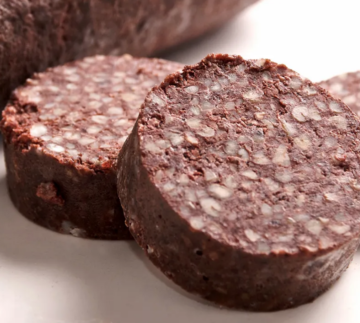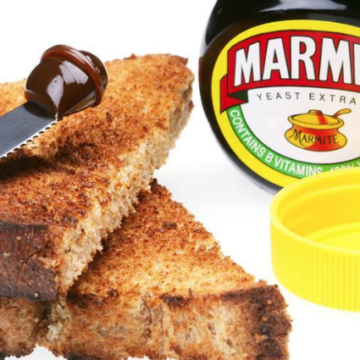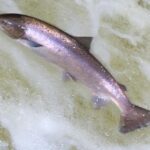Activia yogurt have to be one best known probiotics yogurt on the market, regardless where you live. Adverts a plenty on TV, mags and various internet places, you can’t miss it.
Its secret? probiotics! promises of better digestion and helping to renew our gut flora. Sure, we eat it, especially since there are so many different flavors available. However is it the same for dogs?
Can dogs eat activia yogurt? let’s find out!
Beware of xylitol
Xylitol is an artificial sweetener that is used in many products, including yogurts. However, it can be naturally found in small amounts in plums, strawberries, cauliflower, and pumpkin.
Xylitol is known to be toxic for dogs and, according to the FDA, symptoms of xylitol poisoning in dogs include vomiting, followed by symptoms associated with the sudden lowering of your dog’s blood sugar, such as decreased activity, weakness, staggering, incoordination, collapse and seizures.
What is in an activia yogurt?
Activia yogurts come in different flavors, from blend to fruity, with cereals and so forth. However, all have the same base. Trying to find if activia yogurt do contain xylitol is a bit complex. No indication on the activia website, nor FDA.
The open food fact database lists the various additives used by activia around the world, however xylitol doesn’t appear on that list.
On the other hand, activia does a lot of advertising around the fact that their yogurt are probiotic.
What is an activia probiotic yogurt?
Probiotic are are live microorganisms promoted with claims that they provide health benefits when consumed, generally by improving or restoring the gut flora.
They have been recognized by WHO as beneficiary only in adequate servings.
So, indeed, activia yogurts are probiotic yogurts. If you visit the activia webpage, you will see that they indicate clearly which live cultures (probiotics) they have in their yogurt such as :
- L. BULGARICUS (2),
- L. LACTIS,
- S. THERMOPHILUS
- LIVE AND ACTIVE PROBIOTIC B. LACTIS DN 173-010/CNCM I-2494
What do those probiotics do?
Well, this is where the plot thickens. In human, probiotics are claimed to have positive impact on our gut flora. However, as mentioned by healthonline.com , there is few evidence that those benefits can stretch to working against health issues such as liver disease, cold collic..etc..
In fact, it is important to note that both the FDA and the National Institute of Health (NIH) are cautioning people against such beneficial claims.
What about in dogs? Are probiotics good for dogs?
Well, the truth is that there hasn’t been a lot of studies done on the subject. In fact, as pointed out in this article from the US national library of medicine, “Overall knowledge of the best characteristics of a canine microbial commensal or probiotic is patchy and most assumptions about their best properties are derived from human studies”.
In other words, there is no concrete evidence, neither from a human or canine point of view.
However, some probiotics are used in dog food manufacturing and can be found in food sold in the US and in Europe, here again the article points out that studies’ outcomes are patchy at best.
Should you give probiotics to your dog then?
Since probiotics are already present in some dog food, check out the packaging just in case as you may already feed him probiotics.
Like with everything else, introducing new components in a diet could cause dogs some digestive issues, especially diarrhea.
Otherwise, especially depending on your dog’s size and breed, better hold on until you speak to your vet before giving him some probiotic yogurt.
What about the benefits of activia yogurt with fruits?
According to the activia website, activia yogurt come in strawberry, mango, peach, black cherry, blueberry, mixed berry, prune, strawberry banana and finally, vanilla (note that vanilla or vanilla extract are toxic to dogs).
If you read carefully the description of each yogurt content, you will see that they all have natural flavoring, vegetable juice and “the fruit” in question.
It seems a bit odd that a fruit yogurt needs those additives as well as the fruit. In fact, a French study carried out in 2021, found that on average fruity yogurt contain only 8% of fruit (264 yogurts tested).
If you really want to go ahead with the idea of feeding your dog probiotic yogurt with fruits, you are better off using blend probiotic yogurt and adding real fruits, as explained in this paper published by oxford academic.
TAKEAWAY
So can dogs eat activia probiotic yogurt? Well, they may be ok with the odd spoon full every other months, but otherwise no, it shouldn’t be something you should feed your dog on a regular basis.
Also, it might be good for you to mention to your vet that you are giving your dog activia as a precaution in case your dog shows sign of health issues.
FAQ
1 – Can dogs eat yogurt? Yes, BUT, you should always check if there is xylitol in the yogurt if you are planning on giving him yogurt with fruit (off the shelf)
2 – Can dogs eat Greek yogurt? Yes, BUT do not feed him a lot at 1st. With any new food, introduce it gently into its diet.
3 – Can dogs eat strawberry yogurt? most off the shelf fruit yogurts contain xylitol which is toxic for dogs. If you want to feed him strawberry yogurt, use real fruits mixed with a plain type of yogurt
4 – Can dogs eat vanilla yogurt? No, vanilla and vanilla extract are poisonous to dogs
5 – Can dogs eat plain yogurt? Yes, BUT do not feed him a lot at 1st. With any new food, introduce it gently into its diet.
6 – Can dogs eat frozen yogurt? Usually frozen yogurt is a fruity yogurt. As with previous answers, you need to make sure that your yogurt doesn’t contain xylitol (toxic to dogs) or vanilla (toxic to dogs too). Do not feed him a lot at 1st. With any new food, introduce it gently into its diet.










